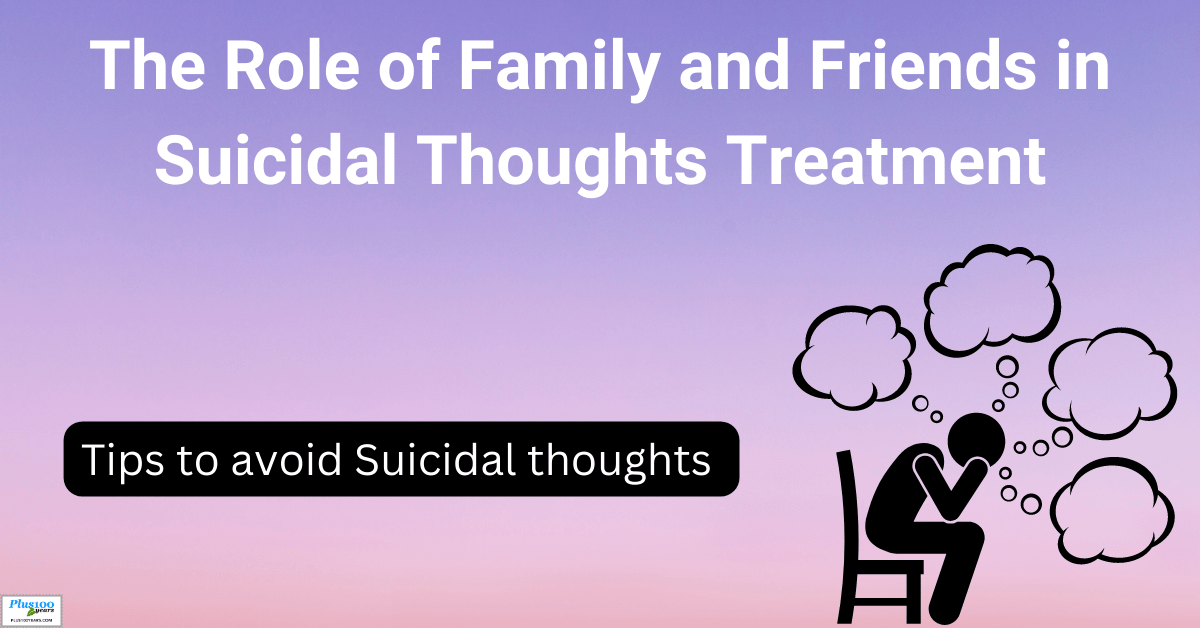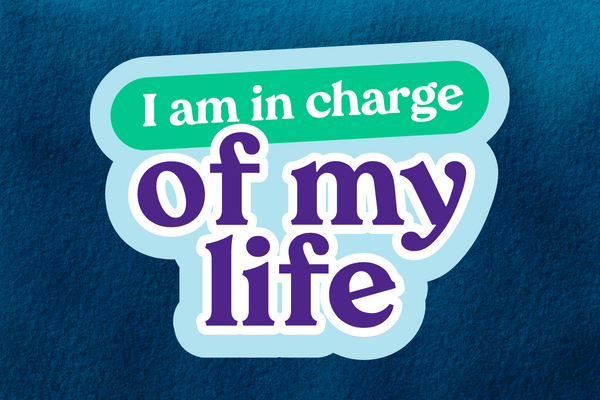
To the Role of Family and Friends in the Treatment of Suicidal Thoughts and Ideations Suicidal thoughts and ideas are a serious and growing issue in our society.
The World Health Organization (WHO) estimates that approximately 800,000 people commit suicide each year, making it the second leading cause of death among individuals between the ages of 15 and 29.
A multidisciplinary approach that incorporates social, psychological, and medical interventions is necessary for suicide prevention. In the Treatment of Suicidal Thoughts and the prevention of suicide, family, and friends play a crucial role.
Fear, shame, or stigma may prevent them from seeking professional assistance. However, by providing understanding and non-judgmental support, friends and family can assist in removing these obstacles.
They are able to pay close attention, show empathy, and acknowledge the suicidal person's feelings. They can also encourage the individual to seek professional assistance and assist the individual in determining their resources and strengths.
- It's possible that people who have such thoughts are experiencing intense emotions and require immediate assistance. It is essential to pay attention to them, provide assistance, and urge them to seek professional assistance.
- Mental health issues, substance abuse, traumatic events, and stressful life events are all potential causes of suicidal ideation.
- It is essential to comprehend that these thoughts do not indicate that the individual wishes to die; rather, they indicate that the individual feels overwhelmed and unable to deal with the circumstances at hand.

Possessing a hopeless or trapped state Possessing a hopeless or trapped state can be a challenging and overwhelming experience.
It can make one feel helpless and uneasy about what to do next. It can appear as though there are no options or a way out. Depression, anxiety, and even suicidal ideation can result from this.
It is essential to seek support from loved ones, therapists, or support groups when we feel trapped or hopeless.
It's also important to remember that we can change our lives, no matter how insignificant they may appear.
We can break free of feelings of hopelessness and find a way forward by taking baby steps and focusing on what we can control.
Unbearable emotional or physical pain is one of life's most difficult experiences.
A wide variety of factors, such as traumatic experiences, the death of loved ones, or prolonged stress, can result in emotional pain. A variety of illnesses, injuries, and chronic conditions can also cause physical pain.
When suffering from unbearable pain, it is essential to seek assistance, regardless of the cause. Self-care practices, seeking medical or mental health care, and reaching out to loved ones for support are all examples of this.
It is possible to find a way to heal and recover from unbearable pain.
Social activity and relationship withdrawal Social activity and relationship withdrawal are occurrences that affect a lot of people.
Anxiety, depression, and other mental health issues frequently set it off. People whose mental health is deteriorating withdraw from relationships and social activities and may experience feelings of isolation and loneliness.
It may be difficult for some people to connect with others because they have trouble expressing their thoughts and feelings.
Some people may avoid social situations entirely out of fear of being rejected or abandoned. A more severe mental illness, such as schizophrenia or bipolar disorder, may also manifest as withdrawal from social activities and relationships.
If you or someone you know is experiencing withdrawal from social activities and relationships, it is important to get professional help.
Risky or self-destructive behavior Risky or self-destructive behavior can have serious effects on a person's mental, emotional, and physical health.
Drug abuse, alcoholism, gambling, careless driving, unprotected sex, eating disorders, and other behaviors are examples of these behaviors.
Even though these actions may provide some relief or pleasure for a short time, they frequently result in long-term consequences that have a negative impact on a person's life, such as addiction, physical injuries, financial difficulties, social isolation, and poor performance in school or work.
It may be beneficial for people who engage in risky or self-destructive behaviors to seek professional assistance, such as therapy or counseling, in order to address the underlying issues that motivate their behavior and acquire healthy methods for stress and emotion management.
What Are Suicidal Thoughts?
Suicidal thoughts are thoughts about ending one's life. They can range from fleeting ideas to detailed plans. They can also occur in response to stressful life events, such as a breakup, job loss, or financial problems.
Suicidal thoughts are not uncommon. According to the World Health Organization, around 800,000 people die by suicide every year, and for every suicide, there are many more people who attempt it or have suicidal thoughts.
In the United States, suicide is the tenth leading cause of death, and it affects people of all ages, genders, and backgrounds.
Signs and Symptoms of Suicidal Thoughts
However, there are some indications that a person might be considering suicide. These include:
- Feeling hopeless, helpless, or worthless
- Withdrawing from friends and family
- Sleeping too much or too little
- Eating too much or too little
- Acting recklessly or impulsively
- Feeling agitated, anxious, or irritable
Changes in mood, such as extreme sadness or rage Changes in mood, particularly extreme sadness or rage, can be alarming and disruptive to daily life.
People who experience intense feelings of sadness, anger, or irritability that come on suddenly and without warning may feel as though they are on an emotional rollercoaster.

These mood swings can be brought on by a number of things, like stress, hormonal changes, or mental health issues like bipolar disorder or depression.
Sudden shifts in mood can also be a sign of physical health issues like thyroid problems or neurological conditions.
Sudden shifts in mood can be challenging to manage and may necessitate professional intervention, regardless of the underlying cause.
They can come on suddenly, with no warning signs or triggers. They can also linger for weeks, months, or even years, making life feel unbearable. But even in the depths of despair, there is hope and light to be found.
Risk Factors for Suicidal Thoughts
Suicidal ideation can occur for many reasons, and it's essential to understand the underlying risk factors that may contribute to these thoughts. The following are some of the most prevalent risk factors for suicidal ideation:
- Depression and anxiety: People who experience depression and anxiety are at increased risk for suicidal ideation.
- Trauma and abuse: Experiencing trauma or abuse can lead to feelings of hopelessness, fear, and intense emotional pain.
- Substance abuse: Substance abuse can exacerbate underlying mental health conditions, making suicidal thoughts more likely.
- Chronic pain or illness: Chronic pain and illness can cause physical and emotional distress, leading individuals to feel hopeless and overwhelmed, increasing the risk of suicidal ideation.
- Family history of suicide: People with a family history of suicide may be more likely to experience suicidal ideation, indicating a genetic or environmental risk factor.
Treatment Options for Suicidal Thoughts
The most important thing is to seek help from a mental health professional, such as a therapist, counselor, or psychiatrist.
Some common treatments for suicidal thoughts:
Psychotherapy
Psychotherapy, or talk therapy, is a type of counseling that helps people explore their thoughts, feelings, and behaviors in a safe and supportive environment. There are several types of psychotherapy that may be helpful for suicidal thoughts, including
Cognitive-behavioral therapy (CBT): This type of therapy helps people identify and change negative thought patterns and behaviors that contribute to suicidal thoughts.
Dialectical behavior therapy (DBT): This type of therapy combines individual therapy with skills training to help people manage intense emotions and interpersonal relationships.
Interpersonal therapy (IPT): This type of therapy focuses on improving communication and relationships with others, which can reduce feelings of isolation and hopelessness.
Medication
Antidepressants can help regulate mood and reduce symptoms of depression, which can in turn reduce suicidal thoughts. However, medication should always be used in combination with therapy and under the guidance of a healthcare provider.
Hospitalization
Hospitalization provides a safe and supportive environment where people can receive intensive treatment and monitoring.
Suicidal thoughts are a complex and challenging issue that affects millions of people worldwide.
Finding light in the darkness of suicidal thoughts involves identifying and accessing appropriate treatment options that can help individuals manage their symptoms and find hope and purpose in life. The following are some of the most effective treatments for suicidal ideation:
- Therapy: Therapy can help individuals identify and address the underlying issues that contribute to suicidal ideation. Therapy can also teach individuals healthy coping mechanisms to manage their symptoms and improve their overall mental health.
- Medication: Medications, such as antidepressants and anti-anxiety medication, can help individuals manage their symptoms and improve their overall mental health.
- Support groups: Support groups can provide individuals with a sense of community and a safe space to share their experiences and feelings.
Also Read:: How to get good thoughts? do this every day
Conclusion
Suicidal ideation is a complex and challenging issue that affects millions of people worldwide. While suicide is a significant public health concern, it's essential to note that suicidal thoughts are treatable, and many people can recover from these thoughts and feelings with the right support and intervention.
Finding light in the darkness of suicidal thoughts involves understanding the underlying causes and risk factors that contribute to suicidal ideation and identifying and accessing appropriate treatment options that can help individuals manage their symptoms and find hope and purpose in life.
With the right support and intervention, individuals experiencing suicidal ideation can recover and live fulfilling and meaningful lives.

Faq’s
Q: What are suicidal thoughts?
A: Suicidal thoughts are thoughts or ideas about taking one's own life, often associated with depression or other mental health issues.
Q: Are suicidal thoughts common?
A: More people than most people realize have suicidal thoughts. It's estimated that up to 10% of people experience suicidal thoughts at some point in their lives.
Q: Is it normal to have suicidal thoughts?
A: While it's not uncommon to have occasional thoughts about death or suicide, persistent and intrusive thoughts about suicide are not normal and may indicate a serious mental health issue.
Q: Can talking about suicidal thoughts make them worse?
A: No, talking about suicidal thoughts does not make them worse. In fact, speaking openly about suicidal thoughts can help reduce feelings of isolation and increase the chances of getting the help needed.
Q: Can suicidal thoughts be treated?
A; Yes, suicidal thoughts can be treated. Medication can help manage any underlying mental health conditions such as depression or anxiety that may be contributing to the thoughts.

Add new comment